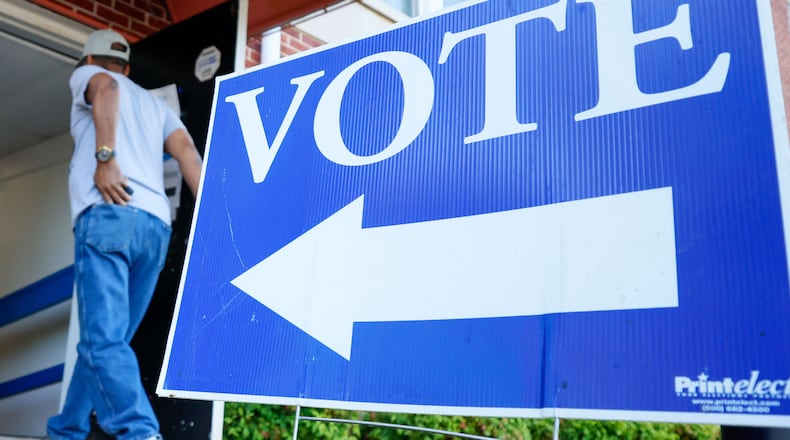Georgia has entered into a legally mandated “quiet period” for hearing voter eligibility challenges, but that hasn’t stopped a small group of activists from keeping the pressure on election officials.
As a flurry of litigation ramps up ahead of the 2024 presidential race, conservative activists are bypassing local election boards and appealing to the courts to remove voter registrations they claim are ineligible.
The lawsuits come as prolific Republican activists in Cobb, DeKalb, Fulton and Gwinnett, who have seen county election boards dismiss more than 45,000 voter challenges since July 1, seek a new venue for their claims.
The DeKalb County Republican Party filed a lawsuit in superior court last month against the county election board accusing it of failing to maintain clean voter rolls and refusing to consider voter eligibility challenges. In another case, filed in the U.S. District Court in Atlanta, two conservative activists in Fulton County made similar accusations but later withdrew their lawsuit.
The latest lawsuit, filed by David Cross, an election skeptic who was elected last year to be second-vice chair of the Georgia GOP, against Secretary of State Brad Raffensperger accuses the state of not maintaining its voter rolls. The lawsuit contends that thousands of voters on the state’s voter rolls have moved to a new state or jurisdiction, making them ineligible to vote.
“Georgia’s failure to correct these registrations is an ongoing, systemic violation of the NVRA (National Voter Registration Act) and Georgia law,” the lawsuit states.
Under federal law, systematic removal of voters must be performed no later than 90 days before a federal election.
The state routinely removes voters who have died, committed felonies, or have notified election officials that they have moved and no longer want to be registered in Georgia. In addition, there there’s a biennial process for removing outdated voter registrations associated with individuals who haven’t participated in recent elections.
Last year election officials canceled 189,000 inactive voters.
Voting rights advocates and legal experts say winning legal battles may not be the aim of the lawsuits.
“Mass voter challenges aren’t just about hamstringing election offices and wasting their time and resources, it is also about intimidation,” said Lauren Groh-Wargo, CEO of the Democratic voting rights organization Fair Fight Action.
State laws passed in the wake of the 2020 presidential election allow any registered voter to contest an unlimited number of voters in the same county. Republican activists say the challenges are necessary to reduce the potential for voter fraud, while election advocates say the challenges could disenfranchise eligible voters.
But it’s not only Republicans going to court. Civil rights groups have filed lawsuits against Georgia’s latest election law — Senate Bill 189 — which further empowers activists to contest the eligibility of voters by allowing activists to begin the removal process even closer to Election Day.
Partisans and advocacy groups have filed at least 22 lawsuits in the state since May. At least six lawsuits have been filed in September, and more are likely with Election Day nearly a month away.
About the Author
Keep Reading
The Latest
Featured





